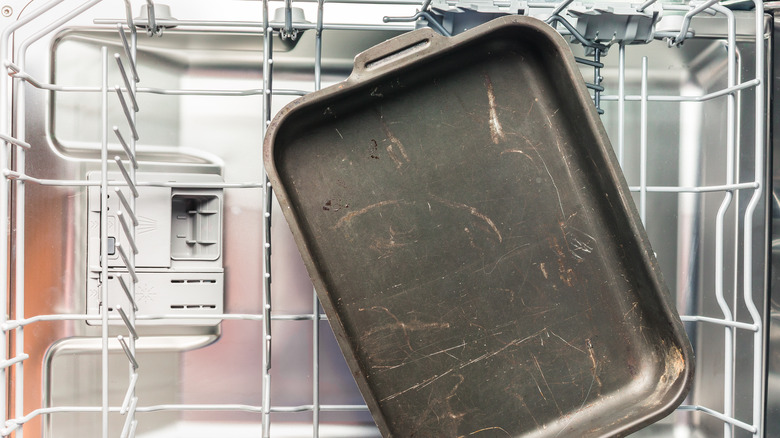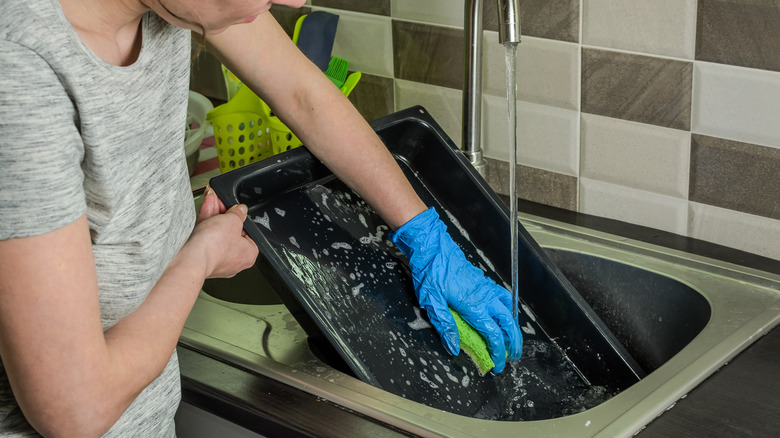Your Dishwasher Could Be Damaging Your Baking Sheets. Here's How
If you're someone who makes good use of their oven, chances are your baking sheets have been through the ringer. But no matter how many batches of cookies you bake, or vegetables you roast, a baking sheet is meant to handle it all. Ironically enough, despite the fact that they can withstand high temperatures over an extended period of time, baking sheets are sometimes no match for the dishwasher.
As Home Cook World explains, baking sheets are typically made of uncoated aluminum. And unless the aluminum has been anodized, the chemicals in dishwashing detergent will ruin the surface. While some wear and tear is normal, corrosion and warping is not. If your pans are damaged beyond a few scratches and a bit of discoloration, it's the dishwasher to blame, not the oven. Non-stick baking sheets are no exception. They may be labeled as "dishwasher safe," but unfortunately, non-stick baking sheets are still subject to damage. When exposed to hot water and dishwashing detergent, the non-stick coating will wear away and no longer be food-safe.
How should you clean your baking sheets?
If you want your baking sheets to last for years to come, the first step is to wash them properly after every use. Of course since the dishwasher is out of the question, you'll have to do it all by hand. For baking sheets with only food residue and grease, soap and water will do just fine. However, according to AllRecipes, if there's heavily baked-on oil or pieces of burned food stuck to the baking sheet, you'll have to resort to a more heavy duty method.
Start by filling your sink with hot water, and pour in about half a cup of baking soda and the same amount of white vinegar. Let the baking sheet soak anywhere between 30 minutes to an hour, then scrub and rinse. After this initial cleaning you can go ahead and use soap and water to wash away the excess vinegar. Using this method, your baking sheets will be nice and clean without ever having to go through the dishwasher.

